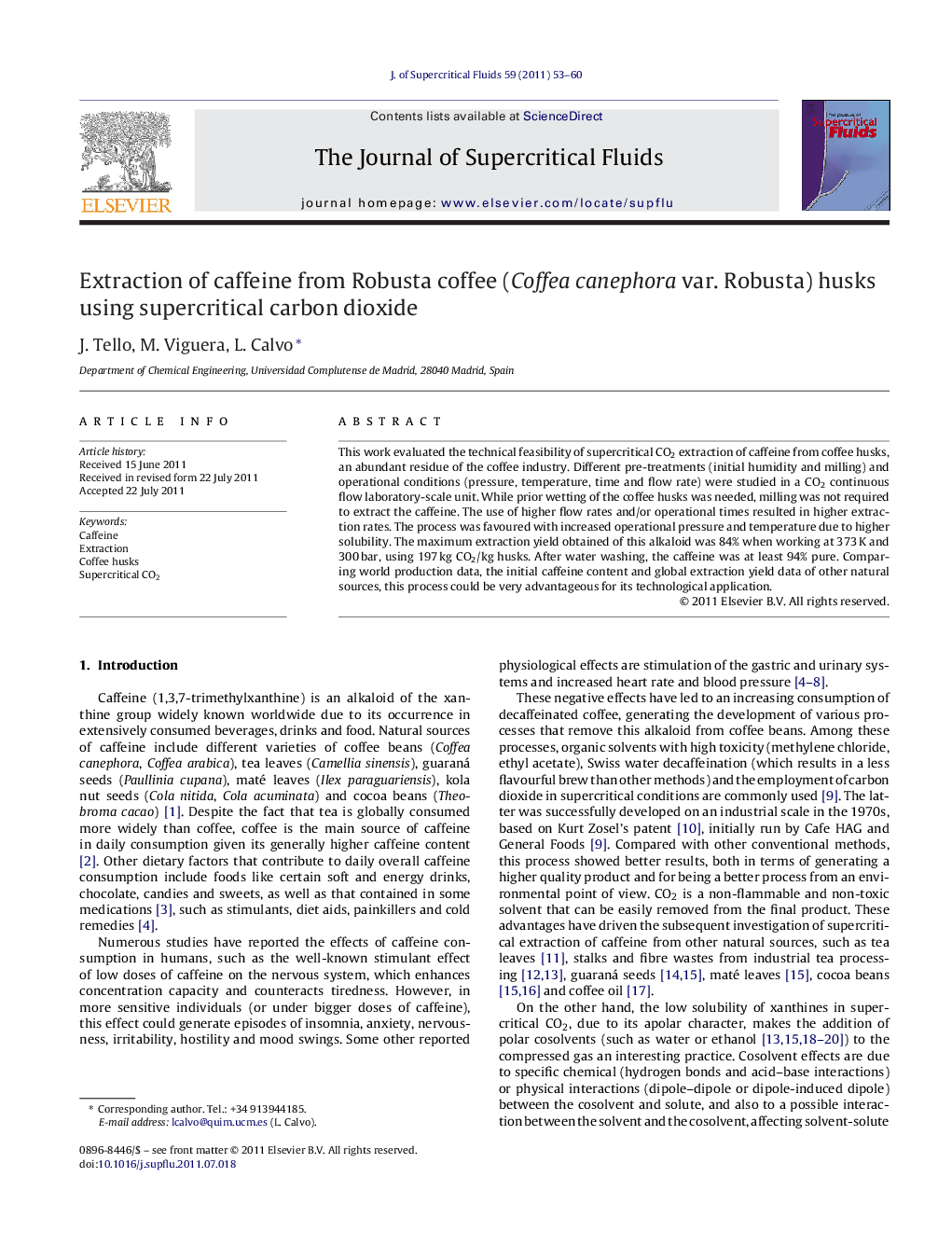| Article ID | Journal | Published Year | Pages | File Type |
|---|---|---|---|---|
| 231189 | The Journal of Supercritical Fluids | 2011 | 8 Pages |
This work evaluated the technical feasibility of supercritical CO2 extraction of caffeine from coffee husks, an abundant residue of the coffee industry. Different pre-treatments (initial humidity and milling) and operational conditions (pressure, temperature, time and flow rate) were studied in a CO2 continuous flow laboratory-scale unit. While prior wetting of the coffee husks was needed, milling was not required to extract the caffeine. The use of higher flow rates and/or operational times resulted in higher extraction rates. The process was favoured with increased operational pressure and temperature due to higher solubility. The maximum extraction yield obtained of this alkaloid was 84% when working at 373 K and 300 bar, using 197 kg CO2/kg husks. After water washing, the caffeine was at least 94% pure. Comparing world production data, the initial caffeine content and global extraction yield data of other natural sources, this process could be very advantageous for its technological application.
Graphical abstractFigure optionsDownload full-size imageDownload as PowerPoint slideHighlights► The feasibility of supercritical CO2 extraction of caffeine from coffee husks was evaluated. ► While humectation of raw material up to 32% was necessary, milling was not. ► Extraction was favoured with increased pressure and temperature and at high mass solvent ratios. ► Extracts showed an average caffeine purity of 67%, obtaining a maximum extraction yield of 84%. ► The coextracted compounds could be easily removed by simple water washing and subsequent evaporation, resulting in high purity extracts.
